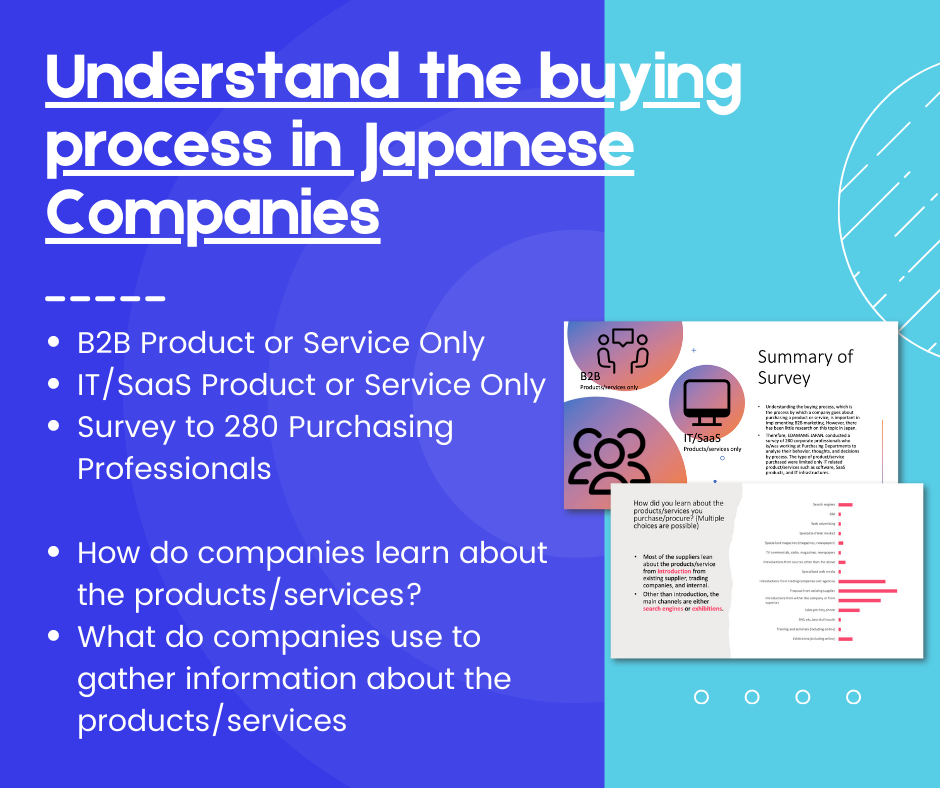Japan Market Entry: A Comprehensive Guide to Penetrating the Japanese Market Successfully

Venturing into Japan’s dynamic market can be both exciting and challenging. This guide is designed to help you navigate your Japan market entry. You’ll understand the unique Japanese business culture, get insights into market trends, and learn about the legal aspects of doing business in Japan.
Consider the success story of Disney. When Disney decided to open its first theme park outside of the U.S in Tokyo, they carefully tailored the experience to cater to Japanese culture and preferences. They included teahouses and noodle shops alongside traditional American fare and took Japanese customs and manners into account within the park. This attention to local culture has made Tokyo Disneyland and DisneySea among the most profitable Disney parks worldwide.
Whether you’re a large company planning expansion or a startup eyeing global opportunities, let this guide steer your successful journey into the Japanese market. Let’s dive in!
- Understanding the Japanese Market for Successful Market Entry
- Cultural Understanding: A Prerequisite for Japan Market Entry
- Developing Your Japan Market Entry Strategy
- Legal Aspects of Market Entry in Japan
- Marketing for Japan Market Entry
- Navigating Japanese Business Etiquette for Successful Market Entry
- Conclusion
Understanding the Japanese Market for Successful Market Entry
To succeed in Japan, you need to understand not only its economy but also its unique customer behaviors and preferences.
Overview of the Japanese Market: Essential for Japan Market Entry
Japan is the world’s third-largest economy, renowned for its tech advancements and high consumer buying power. Japanese consumers value quality, good customer service, and social impact, so remember these points when planning your entry.
Identifying Key Sectors and Opportunities for Market Entry in Japan
Finding the right sector for your business is key to success in Japan. Tech, healthcare, renewable energy, and luxury goods are growing sectors. But the best fit for you depends on your business strengths and how you can meet Japanese consumers’ needs.
Take Apple Inc., for example. They succeeded by offering high-end technology to Japanese consumers who love premium products. So, like Apple, find opportunities that match your offering with what the market wants.
In the following sections, we’ll explore Japanese business culture, market trends, and the legal aspects of doing business in Japan.
When eBay, the U.S.-based online auction and shopping website, entered the Japanese market in 2000, it faced stiff competition from Yahoo! Auctions, which had already captured the market by providing a free platform for users. eBay couldn’t gain traction and withdrew from the Japanese market in 2002.
One of the reasons eBay failed in Japan was its late entry into the market, which meant that most Japanese consumers already had an account with Yahoo! Auctions. eBay also lacked local partnerships, which were critical for understanding the Japanese consumers’ preferences and building trust. Lastly, eBay’s fee-based model didn’t sit well with Japanese consumers who were used to free listings on Yahoo! Auctions.
This example highlights the importance of understanding local consumer preferences, the competitive landscape, and the timing of market entry. eBay’s experience in Japan demonstrates that even a global giant needs to adapt its strategy to local market dynamics to be successful.
Cultural Understanding: A Prerequisite for Japan Market Entry
Understanding Japan’s unique culture is vital for any business aiming to make a successful entry into the Japanese market.
Why Cultural Understanding is Significant for Japan Market Entry
Japanese culture is deeply rooted in tradition and respect. This reflects in their business practices too. Understanding these cultural nuances can be the difference between success and failure. A simple misunderstanding can hinder business relationships, while awareness and respect for their customs can help forge strong, lasting partnerships.
The Unique Aspects of Japanese Business Culture for Market Entrants
There are several unique aspects of Japanese business culture that entrants need to understand. For instance, the Japanese value harmony and consensus in decision-making, often leading to a longer decision-making process. Also, formalities and respect for hierarchy are crucial in Japanese business etiquette.
Moreover, the concept of ‘Omotenashi’ or selfless hospitality plays a key role in Japanese customer service. Japanese businesses strive to anticipate customer needs and satisfy them even before they are voiced.
Let’s take the example of Vodafone, a British telecom giant. When they entered the Japanese market, they failed to cater to the specific needs of Japanese consumers, who preferred highly customized phones with unique features, unlike the standard models that Vodafone was offering. This lack of understanding and adaptation to local consumer preferences led to Vodafone’s exit from the Japanese market in 2006.
This illustrates how a solid understanding of Japanese culture and consumer preferences is crucial to successfully enter and sustain in the Japanese market. Up next, we’ll dive into understanding market trends in Japan.
Developing Your Japan Market Entry Strategy
A well-planned strategy is essential for entering the Japanese market. It involves conducting thorough market research, choosing the right business model, and forming beneficial partnerships.
The Importance of Market Research for Entry into Japan
Market research is the first step in your entry strategy. It gives you a deep understanding of the market landscape, consumer behavior, competitors, and potential challenges. This insight allows you to align your products or services with local preferences and stay competitive.
For example, when Netflix expanded to Japan, they conducted extensive research to understand the local taste for content. As a result, they invested heavily in anime and other locally produced content, contributing significantly to their success in the Japanese market.
When Netflix expanded its services to Japan, it didn’t simply transplant the same content library that it had in the US. They recognized that the Japanese audience has distinct tastes and preferences, and they needed to cater to these to be successful.
One of the most significant differences is the content offering. Netflix invested heavily in licensing local Japanese content and producing original content in Japan. Anime, in particular, is a genre that has significant popularity in Japan. Netflix capitalized on this, commissioning and licensing various anime series and movies to cater to this demand.
In addition, Netflix formed partnerships with local telecom companies, such as ABEMA, to offer Netflix as part of package deals, thus making it easier for customers to sign up for their service.
This level of localization and understanding of the Japanese market helped Netflix to overcome the initial hurdles and gradually grow its subscriber base in Japan. It is a strong example of how market research and a tailored approach are key to a successful market entry strategy.
Choosing the Right Business Model for Market Entry in Japan
Selecting the appropriate business model is crucial. Whether it’s a joint venture, direct export, franchising, or establishing a subsidiary, the choice depends on various factors like your business size, resources, and market understanding.
Coca-Cola provides a good example. They established a strong presence in Japan through a local subsidiary, Coca-Cola Japan Co., Ltd., which allowed them to adapt quickly to local market trends and preferences.
Forming Partnerships and Alliances for Market Entry in Japan
Forming partnerships with local businesses can be beneficial. They can provide invaluable insights into local markets, help navigate legal and bureaucratic procedures, and increase your credibility in the eyes of consumers.
Consider the success of Renault. When entering the Japanese market, they formed an alliance with Nissan, a trusted local brand. This strategic partnership gave Renault a better understanding of the Japanese market and customer preferences, leading to a successful market entry.
In the next section, we’ll cover the legal considerations you need to know when entering the Japanese market.
Legal Aspects of Market Entry in Japan
Navigating the legal terrain is a critical part of market entry in Japan. A sound understanding of local laws and regulations can prevent potential setbacks.
Understanding Business Laws and Regulations for Japan Market Entry
Business laws in Japan are well-structured and provide a level playing field for both local and foreign businesses. Still, understanding these laws, including company law, labor law, and taxation, is key to smooth operations.
For example, the Companies Act outlines various legal structures a foreign company can choose, like Kabushiki Kaisha (joint-stock corporation, KK) or Godo Kaisha (LLC).
Employment regulations are equally crucial. Japan has strict laws regarding working hours, overtime pay, and employee protection. Violations can lead to severe penalties, damaging both your reputation and bottom line.
Required Documentation for Setting up a Business in Japan
Setting up a business in Japan involves preparing and submitting various documents. These may include articles of incorporation, notarized company seals, and bank account details. It’s also important to get your business registered with the local Legal Affairs Bureau.
Remember that setting up a business in Japan can be time-consuming, especially for foreign companies unfamiliar with the process. It’s often beneficial to engage a local business service provider or legal consultant to ensure all procedures are followed correctly.
Marketing for Japan Market Entry
As you prepare for Japan market entry, your marketing strategy should align with local trends and digital landscapes. Here’s an overview of what you should know.
An Overview of Marketing Trends in Japan for New Entrants
Japanese consumers value quality and service over cost. They appreciate detailed product information and often rely on word-of-mouth recommendations. Thus, a marketing strategy that focuses on product quality, superior service, and user testimonials can be effective.
It’s also important to remember that regional differences in Japan can influence consumer behavior. As such, a one-size-fits-all marketing strategy might not be the best approach.
In terms of trends, experiential marketing is gaining popularity. Brands are creating unique experiences for consumers, both online and offline, to stand out in a saturated market.
Related Article: Marketing in Japan | Understanding the Japanese market and customers
Implementing Digital Marketing Strategies for Japan Market Entry
Digital marketing is increasingly important in Japan. A well-thought-out digital marketing strategy can help you reach a larger audience and measure your success with data.
One effective approach is content marketing. Producing high-quality, relevant content can build your brand’s credibility and attract organic traffic. SEO is also important as many Japanese consumers use search engines to research products.
However, navigating SEO in Japan can be challenging due to language intricacies. This is where a company like EDAMAME can assist. We specialize in SEO content that resonates with Japanese audiences and can help your website rank higher on search engines like Google Japan.
Related Article: Japan SEO Practices | 9 Differences and Country-specific Tips
Case: SEO Contents Creation in Japan
Social Media Usage in Japan: A Key Insight for Market Entrants
Social media is a powerful tool for businesses in Japan. Platforms like LINE, Twitter, and Instagram have a significant user base, offering opportunities for brand exposure, customer engagement, and even direct sales.
Each platform caters to a slightly different demographic and serves different purposes. For instance, Twitter is popular for news and updates, while Instagram is used for lifestyle content and visual storytelling.
Understanding these nuances can help you choose the most appropriate platforms and strategies for your brand. If you’re unsure, don’t worry. Our team at EDAMAME has expertise in social media marketing and can help you optimize your presence on these platforms.
Related Article: Top Japanese Social Media Apps: Demographics of 7 Major Apps in 2020
Case: Paid Media, PPC, Social Media Marketing in Japan
Navigating Japanese Business Etiquette for Successful Market Entry
Mastering Japanese business etiquette is crucial for building successful relationships and establishing a strong presence in the Japanese market. Let’s explore key aspects to consider.
Understanding Communication Norms for Market Entry in Japan
Communication in Japan emphasizes politeness, respect, and harmony. Non-verbal cues, such as body language and facial expressions, play an important role. It’s essential to be attentive and observant during meetings or negotiations.
Hierarchy is also significant. The use of appropriate honorific language, addressing individuals by their proper titles, and demonstrating deference to seniority are highly valued.
Furthermore, patience and indirectness are common in Japanese communication. It’s not uncommon for decisions to be reached through consensus-building rather than direct confrontation or assertiveness.
Building Relationships and Trust: Crucial for Japan Market Entry
In Japan, building strong relationships and trust is essential to successful business dealings. Cultivating personal connections, known as “kizuna,” is highly valued.
Invest time in relationship-building activities such as socializing, attending industry events, and engaging in after-work activities like “nomikai” (drinking parties). These activities provide opportunities to deepen connections and establish trust.
Maintaining a long-term perspective is key. Japanese business culture values stable, long-lasting relationships and prioritizes loyalty. Demonstrating commitment and dedication to the relationship can go a long way in earning the trust of your Japanese counterparts.
By understanding and respecting Japanese communication norms and investing in relationship-building efforts, you can establish a solid foundation for successful market entry in Japan.

Conclusion
Entering the Japanese market can be a rewarding journey filled with opportunities for growth and success. However, it requires careful planning, cultural understanding, and a tailored approach to navigate the unique dynamics of the Japanese business landscape.
In this comprehensive guide, we’ve covered essential aspects of Japan market entry, including understanding the Japanese market, cultural considerations, developing a market entry strategy, legal aspects, marketing trends, and business etiquette. We’ve shared real-life examples highlighting the importance of adapting to local preferences and building strong relationships.
At EDAMAME, we understand the complexities of entering the Japanese market. Our team of experts specializes in providing digital marketing solutions tailored to the Japanese audience. Whether it’s crafting compelling content, optimizing your website for search engines, or developing effective digital marketing strategies, we have the expertise to support your market entry journey.
We invite you to leverage our services to gain a competitive edge in the Japanese market. With our knowledge of local trends, cultural nuances, and digital marketing strategies, we can help your business thrive in this vibrant and lucrative market.
Embark on your Japan market entry with confidence, armed with the insights and expertise needed to succeed. We look forward to partnering with you on your journey to success in the Japanese market.
Contact us at EDAMAME today to explore how we can assist you in achieving your Japan market entry goals.
About us and this blog
We are a digital marketing company with a focus on helping our customers achieve great results across several key areas.











